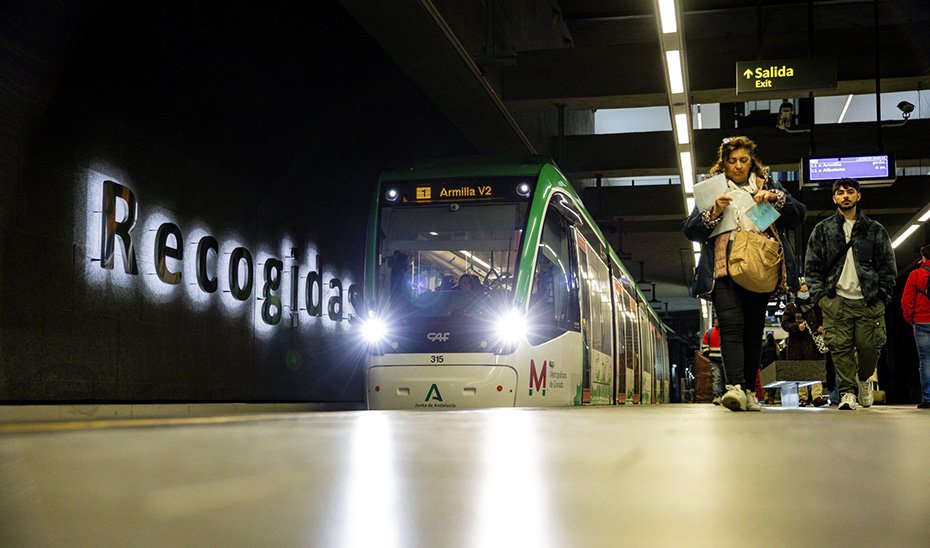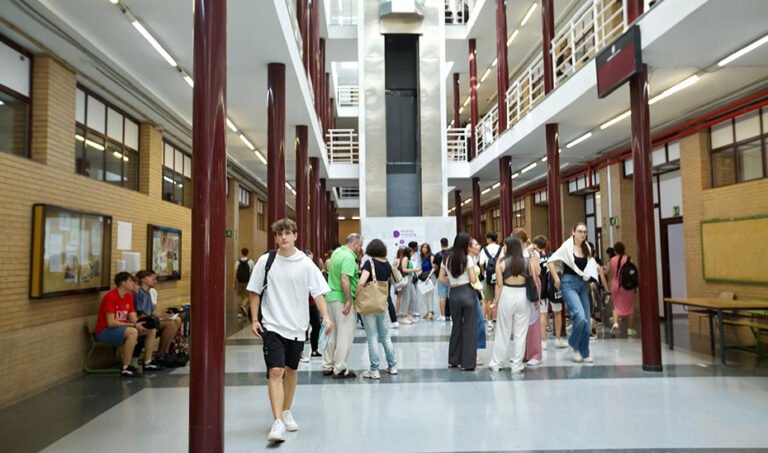
The Regional Ministry of Development, Territorial Articulation, and Housing has incorporated three new trains into the service of the Metro de Granada this morning. After passing all phases of testing and formalizing the administrative authorization for the commissioning of these three trains, the Metro now has an operational fleet of 21 trains, which will reduce the interval between trains to six minutes during peak hours.
The Minister of Development, Rocío Díaz, stated that this fleet expansion, which had already reached a milestone with the incorporation of three new units into service on December 17 of last year, «is one of the most strategic actions to improve the quality of service of the Metro de Granada». «The new trains bring better frequency, more comfort, and an increase in seating capacity,» emphasized the minister, who also mentioned that the new trains will serve the future Southern Extension of the Metro towards Churriana de la Vega and Las Gabias.
The increase in the Metro de Granada train fleet, managed by the Public Works Agency of the Andalusian Government, involves the arrival of eight new URBOS 100 model trains, representing an investment of 40 million euros, co-financed with Next Generation EU funds.
Metro de Granada already has six of these new trains in service. On December 17, it incorporated the first three units of this fleet expansion, with another three being added today. Only the final two units of the fleet expansion remain to be incorporated, once they pass final tests and receive administrative authorization for circulation.
Starting today, Metro de Granada operates with 18 trains during peak hours on weekdays (almost ten hours of service daily from Monday to Friday). This allows for a 28% increase in seating capacity compared to the original fleet (15 units). It also improves the frequency of trains, with an interval of just over six minutes during peak hours. The operational fleet is supplemented by three additional units available to address breakdowns and incidents, as well as to reinforce special services and/or periods of extraordinary demand.
Metro de Granada closed the year 2024 with over 16 million passengers (16,243,044) transported, a 14.5% increase from the previous year. The metro thus set a new demand record, surpassing 80 million passengers transported since its inception in September 2017.






